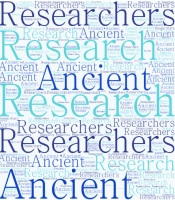When it comes to research, we encounter innumerable obstacles such as the acquisition of the right funds, introducing a hypothetical question, and above all, acquiring the pertinent and requisite paraphernalia such as establishing a credible and well-informed team consisting of a statistician, clinical researchers; in addition to tools, instruments, laboratories, which are all essential to conducting scientifically sound research.
Scientists and researchers have conducted useful research that has helped humanity at large and patients in particular.
Observation has been cited as the fundamental pillar of research. Hippocrates, who is rightly called the father of medicine, dwelt at length and extensively described in a scientific manner many diseases and offered their correct treatments after close and detailed observations. In his time, there were no laboratories and the present-day facilities, and thus he had to exclusively rely and depend on his own observations to arrive at the subtle and concrete answers to the questions that he had theorized in his mind. All these observations needed an eagle’s eye to clinch the truth and the right answer to the questions he had theorized in his mind.
If we cast a casual look at the scientific achievements of ancient Greek philosophers like Plato, Socrates, and Aristotle, it would clearly dawn on us that their ideas had a tremendous impact on our present-day thinking regarding research. These giants contemplated and theorized a train of ideas pertaining to all fields, including moral enigmas, ethics, and a host of other issues. Socrates had his singular way of teaching methods, such as asking thought-provoking questions to his students to challenge their assumptions. This method served as the basis for getting answers to intriguing questions and research hypotheses.
Researchers of the present day are endeavoring to utilize the millennia old thinking laid down by these great giants and philosophers of the past. These philosophers taught us to apply the correct logic to thought-provoking questions and always engage in a skull debate to better transfer answers to thorny questions and philosophical dilemmas.
How far we have succeeded in understanding their ideas is for the readers to judge, but I would dilate at some length on our present-day research in contemporary literature.
Let us take the example of a very tiny plant in our orchard. If you leave it as such, it will wither away. However, it will grow and blossom if you watch it daily and ensure enough sunlight and fertilizer. The same holds for a research project. You must keenly observe your patients, check all the variables and data, and finally come out with honest and unbiased results. In this process, lack of dedicated observation and the slightest dishonesty would render all your efforts fruitless, and thus your manuscript would be declined publication. Thus, it is imperative that you should not strive to arrive at your pre-determined and pre-conceived conclusions but instead let your observations dictate the ultimate and final results. That will facilitate the publication of your work, no matter if you come up with negative results.
Some of our research projects are altogether trivial without an iota of novelty in them and thus are devoid of that rigor and strength which are needed for ideal research work. Part of it could be attributed to a lack of funding, expertise, and external validation. But most of it could be due to an incessant desire to accumulate publications to acquire promotions and faculty positions. Thus, willy nilly, we encounter plagiarism, fraudulent data, and Salami publications in our contemporary literature (1). This unfortunate trend which I would call broad day robbery, undoubtedly causes anguish, apprehension, and insurmountable problems for universities, editorial staff, and scientists.
The current dilemma that we are facing is whether we should the researchers focus on the intent or else the consequences of the research projects that we execute. The answer is not that easy. Mostly it is the consequences that engage our minds while conducting research, and this is what is called the utilitarian approach as proposed by Mill and Bentham (2, 3), as against the theory promulgated by Kant (4), where motivation is held supreme without any regard for the consequences. Kant’s concept of upholding motivation theory foremost in itself also should have a strong moral backing; otherwise, the entire edifice would be in doldrums and in limbo (4). If knowingly or inadvertently you as a researcher inflict harm on a patient, then not only your entire research is to be questioned, but at the same time, you should be held fully accountable, and this salient aspect is not only upheld in the Kantian theory but by other stalwarts in the ancient and contemporary literature (5, 6).
If we conduct honest and calculated research without inflicting any harm to our experimental subjects, our intentions should be considered right; however, the consequences should also be anticipated well in advance to prevent any unanticipated or say anticipated injury to our patients.
In my own personal experience, I feel that we should, as far as possible, incorporate both philosophies, but still, to be more authentic, it would be highly rewarding if we opt for the Utilitarian approach (7) while commencing our research projects.
In conclusion, I would say that academic laurels are only achieved with dedicated research work that imparts zeal, honesty, and novelty. The research should not be trivial, lack novelty, or else fabricated and reflect self-contrived data. The research problem should be our top priority so as to get a concrete answer, and for that to achieve, decidedly, all that we need is subtle and reliable information from our research subjects.
